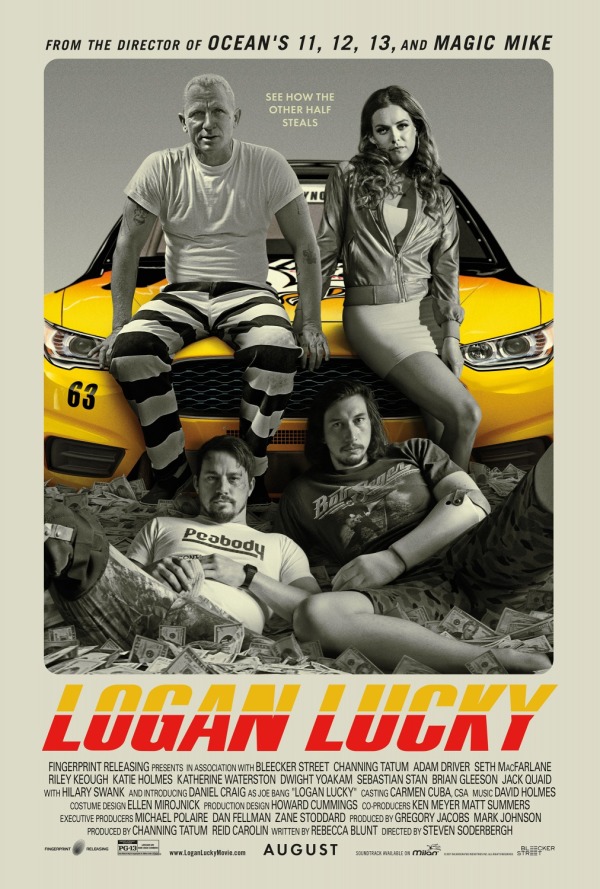
LOGAN LUCKY (Directed by Steven Soderberg, USA, 118 minutes)
 BY CHRISTOPHER MALENEY FILM CRITIC Everyone loves a good heist movie. Whether the planning is minutely perfect or rather haphazard, we dole out mass amounts of money to see them go down on screen. Taking other people’s money is an American pastime, and heroes from Robin Hood to Danny Ocean have provided smash hits for box-offices almost everywhere. Sometimes we love our righteous liberators of wealth, but sometimes we just like to see a clever hero tweak the nose of someone richer. Logan Lucky brings a hilarious, fresh take to take to the classic genre by interrogating the dynamic between capital and labor in 21st Century America.
BY CHRISTOPHER MALENEY FILM CRITIC Everyone loves a good heist movie. Whether the planning is minutely perfect or rather haphazard, we dole out mass amounts of money to see them go down on screen. Taking other people’s money is an American pastime, and heroes from Robin Hood to Danny Ocean have provided smash hits for box-offices almost everywhere. Sometimes we love our righteous liberators of wealth, but sometimes we just like to see a clever hero tweak the nose of someone richer. Logan Lucky brings a hilarious, fresh take to take to the classic genre by interrogating the dynamic between capital and labor in 21st Century America.
Most of the time in America, the film tells us, people living on the poverty line and below face an almost insurmountable battle to become financially stable. Our hero Jimmy (Channing Tatum) loses his job because of bureaucratic machinations. His brother Clyde (Adam Driver) has indignities heaped on him by rich asshole Max Chilblain (Seth MacFarlane doing a ridiculous British accent) for his war wound; when Jimmy tries to intervene, his beating only reinforces the metaphor of the rich beating down the poor. They are trapped in the perpetual Catch-22 of poverty, where they do not have enough money to have enough money to escape. Their labor brings no long-term security, either in money or respect. The only way to guarantee security, then, is an illegal injection of capital. No method within the law can help them or their community.
To pull off their heist, our heroes assemble a grassroots movement that uses some of the poorest individuals to hoodwink the rich. They need people in prison to help them smuggle out convicted criminal Joe Bang (Daniel Craig doing a very convincing American accent). They rely on friends at the speedway to distract the security team. They need a woman inside the vault to unwittingly help them. Each of these people is rewarded for their part, work that society traditionally considers unpaid labor. Our heroes are able to give them the payout that society denies them. Though the Bang brothers insist that stealing from NASCAR is like ‘stealing from America,’ the redistribution of wealth to the lower echelons of society is something that would never occur to either NASCAR or America as necessary.
Logan Lucky is about the impossibility of moving from poverty to security within the bounds of the law. None of the characters dream of being rich, like the Oceans boys. They dream of seeing their family regularly, of being happy, of finding stable work and being able to hold onto small but precious dreams. If they stayed in their ways, working for poor wages or slaving in prison, nothing would change. The system would win. Only by taking action that society censures of can they gain the modicum of capital needed to escape total poverty.
